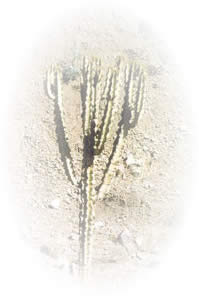

Nevertheless, as with many other applications of this technology, it would seem that many of them are applicable to the arid and or undeveloped parts of the world. Invariably, they tend to be the poorest countries whose ability to pay for normal quantities of fuel to run their economic and social infrastructure is therefore, limited.
Growing large amounts of sugarbeet or corn to distil cheaply within their own borders to make up for the little amount of fossil fuel available, would be a massive boost toward improving their quality of life in general. If a large percentage of their cars / trucks could be modified to take alcohol fuel, the money earmarked for their essential national limited fuel / oil needs, would be free for use in the main electrical generating stations. This would also increase the available proportion of conventional fossil fuel/oil needed by hospitals, emergency services, military and other important departments that are necessary to keep their governments infrastructure in reasonable shape.
If played with a deft hand, the Oil industry and the Pharmaceutical industry could find that their respective reputations are immeasurably improved along with that of the Logging and Farming industries!
Then there are the public’s concerns for a more environmentally responsible approach to be taken by the big mining companies given the demand to see both the clean up of toxic or devastated landscapes and the replanting of them to blend in with the local relief is part of their commercial culture. I believe that most reputable companies do this as a matter of routine commercial practise but it is still very expensive. In this instance the Mat version will come into operation, complimented perhaps by the Pod and tube versions of the Ecosphere.
By soaking up toxic pollutants in specially grown grasses which can be harvested, the land can be sufficiently cleaned up to prepare for the normal replanting of vegetation.
Similarly, on coastal areas or stretches of urbanised beaches subject to erosion from sea storms, Mats could be laid down to grow hardy salt tolerant grasses and bushes. This may prove interesting to local authorities and Insurance companies who have to pay out huge sums due to the destruction of beachhead infrastructure.
Landscaping areas in arid parts of the world such as in cities for town planning purposes or residential gardens, along with the DIY market for household plant survival due to the minimal watering requirements consistent with the use of this technology, could shape up to become a major market. In particular, as a lot of people who tend to have a fair number of plants and flowers in their homes also enjoy holidays abroad, knowing that they will not perish for want of water, will probably help to enhance the quality of their holiday!
Lastly, there is the Wildlife card. Improving the health of the Fauna, Flora and the general Bio-diversity of the world’s environment can only be a good enterprise. This would include the rehabilitation of Elephant ranges, which have been degraded through the impact of local farming needs as well as the ravenous appetite of the elephants themselves. The collateral improvement for other large animals as well as towards a safer coexistence between them and local people may also have a social benefit in terms of dealing with the menace of poaching, another environmental issue.
There is no doubt that this technology lends itself to many applications which, with foresight and imagination and the new developments of it in future, will give rise to a new industry with many as yet un-thought of applications for a long time to come.
......Previous Page